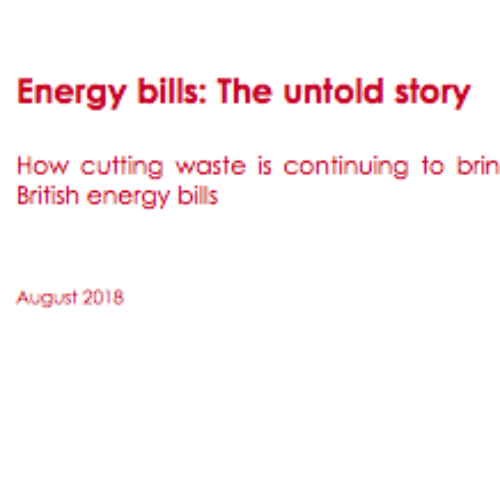Energy bills: The untold story
Report: how cutting waste is continuing to bring down British energy bills
Last updated:
With the Government’s cap on energy bills set to be in place by December, many of the largest companies regularly hitting the headlines for increasing the cost of gas and electricity, and the continuing debate around the cheapest way to decarbonise our energy system, energy bills are rarely out of the news.
But one piece of news that often escapes notice is that Britons’ energy bills are actually falling. Last year a report from the Committee on Climate Change (CCC) showed that since the introduction of the Climate Change Act in 2008, the average annual energy bill had fallen by more than £100. This has been largely driven by a decline in the amount of gas and electricity we use in our homes, which, in turn is largely the result of energy efficiency measures, some funded from levies on bills. These policies reduce the amount of heat that is wasted from homes and cut the power needed to run appliances and lighting.
This report brings the CCC’s analysis up to date. Using the latest Government data, we show that the average standard dual fuel bill fell by £6 from 2016 to 2017. This figure is adjusted for different weather (and thus energy demand) between the two years. Without the adjustment, the fall is £36. On a national basis, this fall continues to more than offset the litany of tariff increases implemented by the Big Six energy suppliers. Since 2008, expenditure on electricity and gas across all British homes has fallen by nearly £4 billion.
